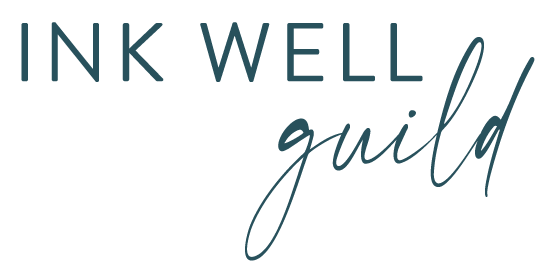If you’re going to be a generalist as a freelance writer, how do you even market yourself?
A generalist freelance writer is simply someone who has not chosen a niche or does not specialize in any one thing or industry. This is perfectly fine, despite talk to the contrary. And yet, when writers are new, marketing themselves as generalists against “the riches are in the niches” noise can be a little intimidating. I’d even wager that many writers don’t think it’s a viable option.
If you are committed to being a freelance writer but also terrified of being a freelance writer and you hear advice everywhere that says “you have to pick a niche, it’s the only way to make money,” then…
I can’t get started because I don’t have a niche becomes an excuse.
Turn Your Excuses to Your Advantage
It’s a dirty word, “excuse,” but I don’t mean it in a dismissive or derogatory sense. Excuses are an important part of doing business; you can actually turn them to your advantage.
The excuse that you keep telling yourself over and over points you to exactly what your obstacle is, to the thing that you’re afraid of, and the thing that you need to work to overcome.
The important thing about excuses is not that you don’t have them… it’s that you know how to face them.
“I don’t have a niche” can be an easy excuse for new writers to fall back on as a reason not to get started. When I say that you don’t have to have a niche, I’m trying to help you move past that obstacle because the obstacle is not a real one. That’s a story that you’ve made up!
When you wrote that story in your head, you were going on limited information. I’m offering you more information, which gives you the opportunity to make a new story and to move forward.
 Two Ways to Market Yourself as a Generalist
Two Ways to Market Yourself as a Generalist
So, how do you market yourself as a generalist?
It’s easy to market yourself as a specialist because you can say, “I am a freelance blog writer specializing in this vertical or this niche,” right? Pretty straight forward. You know where to go for clients and how to have that conversation.
When you will write pretty much anything for anyone, there are two strategies that I have found to be successful.
Pick One Thing to Lead With
The first option is to pick one thing and lead with that. You lead with a specific service or maybe with a niche, depending on the context that you’re in, and then you offer more when it makes sense.
You’re going to lead with one thing and then offer more on the back end, which is marketer talk. The “front end” is where the conversation starts, the “back end” is where the conversation continues.
Let’s use me, for example. The front end for many of you is this blog. If you decide that you like it, maybe you buy one of my courses or join my Facebook group or my mailing list–any subsequent interaction that you have with me is the back end.
As a freelance writer, your front end may be when you send a pitch or advertise your writing services and someone says, “I’m interested in that.” The back end is your subsequent conversations.
Perhaps your next conversation is a sales page discovery call. You not only can do the sales page, but you can offer to do launch emails, and depending on what the deliverable is, you can also offer to write ongoing emails.
If you have other non-writing services such as social media or web design, you can offer those. But you opened the conversation with, “I can write your copy.”
It’s common for clients to want more from you, and offering to do more for them can be seen as helpful. If you offer to do more for someone than just the reason they contacted you and they are offended, that’s a red flag that you might not want to work with them. A word of caution because people offended by upsells and additional helpfulness tend not to be the easiest people to work for.
Tips
You don’t always have to lead with the same thing–take the context under consideration. If you see somebody looking for an email writer, lead with emails. Pitch people who need blog posts by leading with blog posts.
When I was pitching startups as a marketing strategy, I would go to their website to see if they had a blog. If they did, awesome! I would pitch my blogging services and have a line about additional marketing material. Some people were interested in that and wanted to hear more.
Offer related services. Once you figure out what you’re good at and start noticing people who need writers, you meet them where they are and talk about what they need. Then you can offer more in support of that.
If they’re looking for a hamburger and you say, “I can do hamburgers, but I can also do this whole Mediterranean trout dish,” those are not really related! But, if they’re looking for hamburgers and you say, “I make a really good hamburger, and I also make a really good potato salad,” it makes more sense.
Be aware of what you’re doing, who you’re talking to, and get a feel for what they might need. Then offer to help them with anything they might also need.
Be a One-Stop Shop
The other approach you can take is setting yourself up as the one-stop shop for all your writing needs.
Some people will come to you as, “Oh, you’re a writer, can you write all of everything that I need written?”
You can frame it by telling people that you are a versatile copywriter or content writer. If you have experience, you can refer to yourself as experienced, which is on the way to expert. But if you don’t feel ready to claim the expert title, you can say that you’re experienced, or versatile. I think I said that a lot!
If someone is looking for something specific, you can approach them and say, “I am a well rounded writer with XYZ experience. I would love to work with you on this project because I know that my broad experience can bring a lot to the table.”
But Know Some Lingo
If you want to lead with “I’m a versatile writer,” it would benefit you to really understand what your client’s goals are, whatever they need you to help them write.
It’s an advantage for you to understand at least the basics of digital marketing, to sense where you fit within your client’s ecosystem. In my course Client Bound, I teach digital marketing and blog monetization basics. If you want to learn more about that, go to here.
If they are tired of writing their own blogs, you could understand content marketing: what is the role of the blog inside their business, and what are all the different pieces and parts of the blog? Understanding content marketing and blog monetization strategy will really help you because you can speak that language, you know what they are looking for, what they need, and what they’re hoping for.
If you present yourself as knowledgeable and ask the right questions, it’s obvious you understand the lay of the land.
They are much more likely to go with you than someone else because you know what you’re talking about. As long as you have the writing samples to prove that you can actually do the writing, there’s no reason not to hire you, because you understand the context.
You’re not just showing up to write this thing. You are showing up to provide them the service and support of their broader strategy, that they don’t need to explain to you because you already get it.
No Elaborate Explanation Needed
Even experienced copywriters can present themselves as, “I’m a copywriter,” end of story. That’s all they need to say. Even if their niche is as a copywriter specializing in sales page for e-commerce nutrition supplements, they offer more than just that.
I hope that this provides some encouragement and inspiration, especially if you’re struggling with the concept of not having a niche, because you really can market yourself as a generalist. You can get traction that way. I’ve seen this in my students, my friends and colleagues, and my own trajectory over the past 10 years.
For most of us, this is the most effective way to get started. It’s the easiest way to get started. Eventually, we all find our niches.
In the meantime, you can’t find your niche until you have already done the work. You have to know what you like, what you’re good at, what you hate, and the types of people you like and don’t like working for. You’re only going to figure that stuff out as you’re working.
You need to start marketing yourself as a generalist. My hope is that this advice will help you to do so.
As always, you can reach out to me with any questions. Make your way into my Facebook group and ask more specific questions. I really love to hear from you!
Want More?
If you want to learn more about finding freelance writing clients who are going to pay you well, pay you on time, give you recurring work and make you really, really happy to be a freelance writer, then I have something for you–Client Bound, my new course on how to find freelance writing clients. If that sounds good to you, I recommend that you go to copy chatter.com/clients and check it out.





Hi Ashley, thank you for this content. I’m actually at the point where I am confused whether I should niche down or be a generalist.
After thinking about it for a while, I divided that I love working for different niches. I love the fact that I can learn about the latest tech product today and tomorrow I want to write about how to live a productive life.
I searched for “how to be a generalist” and that’s how I came across your blog.
I think this is what I need right now. And once again, thank you!